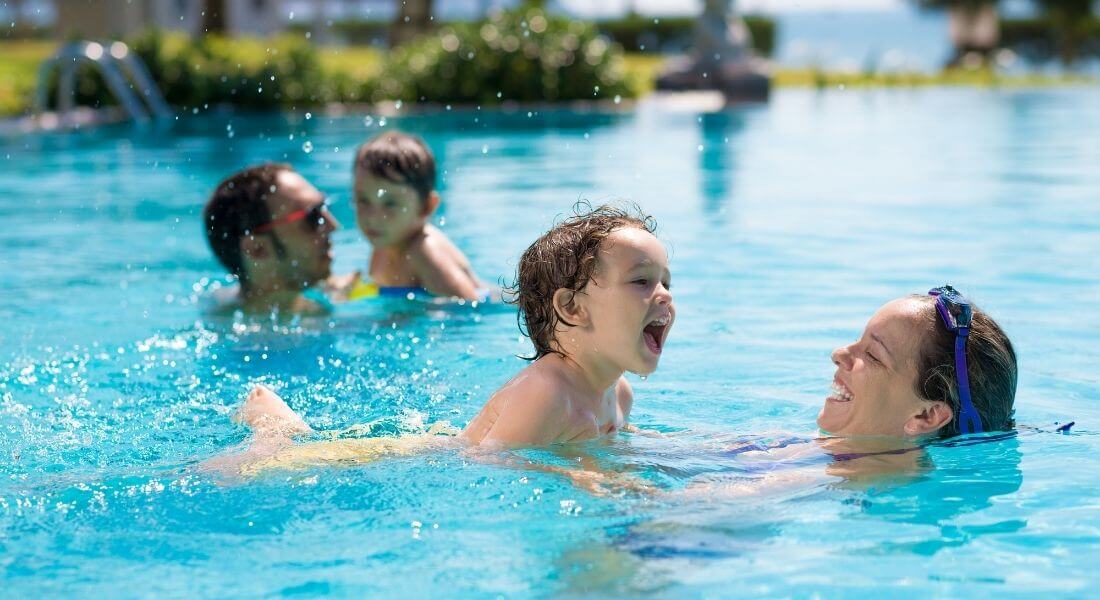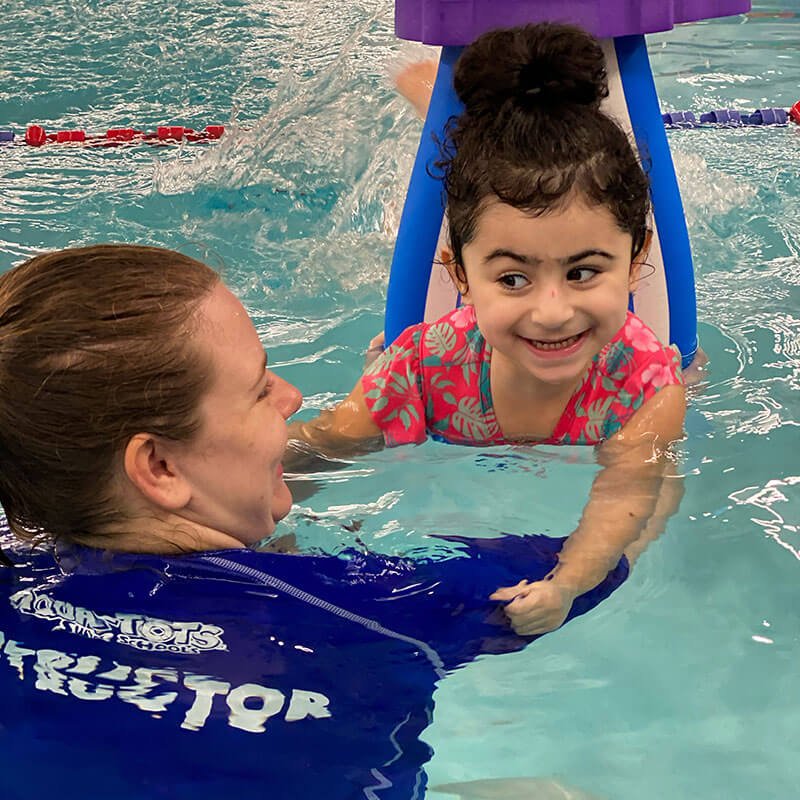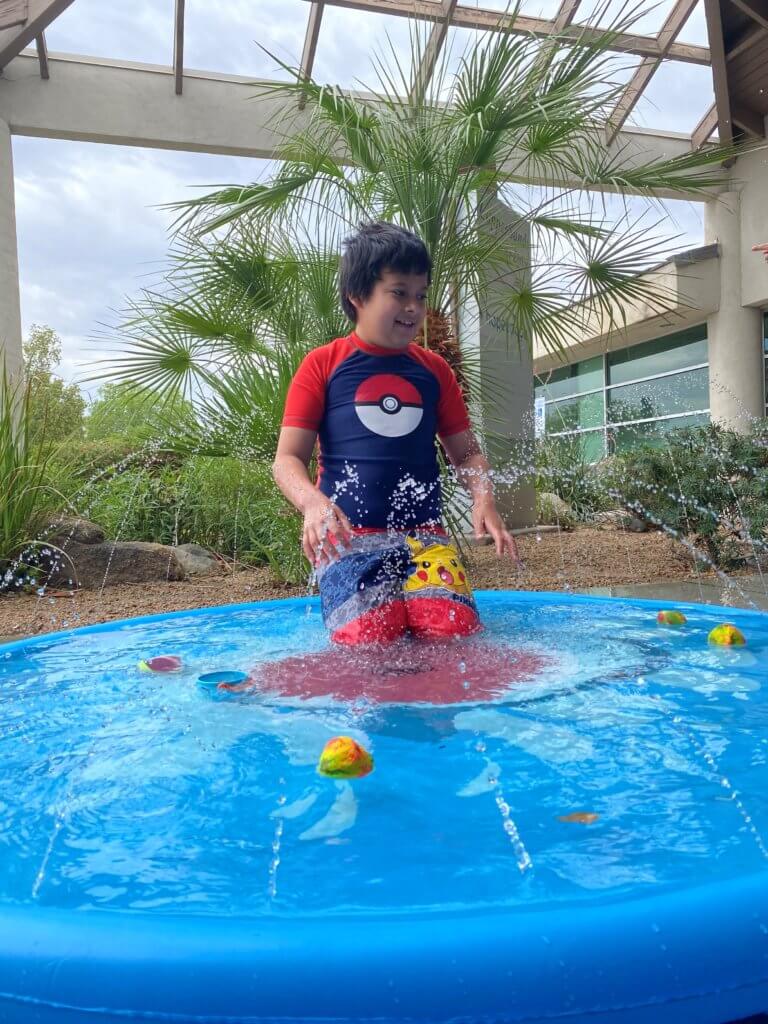Water Safety Tips for Children with Autism
August 13, 2021
August 13, 2021


During the heat of the summer, many families travel to the beach, visit lake houses, spend long days in the swimming pool and splash around in a kiddie pool. As the season comes to an end, we urge caregivers to remember that water safety should not.
This is not an easy subject for us to talk about, but according to the Centers for Disease Control and Prevention (CDC), drowning is a leading cause of death in children. It is important to note that children with autism spectrum disorder (ASD) have an even greater risk around the water than their neurotypical peers, mainly due to some of the challenges associated with ASD. For instance, elopement, trouble following directions, communication challenges, and limited situational awareness can all increase the concern. Others have an affinity to bodies of water and may feel the need to touch the water as a calming effect.
Here is the good news: there are preventative ways to keep our kiddos safe around the water, and Hopebridge Autism Therapy Centers can help.
We don’t intend to scare you, but drowning can happen quickly, quietly and anywhere there is water. In many cases, these tragedies occur at unexpected times when a family does not intend to go swimming. This is why we feel it is so important to discuss water safety – rather than just swim safety – even as many families begin to trade in their swimsuits for sweaters.
To provide advice for parents whose children may come into contact with pools, oceans, canals and other bodies of water year-round, we turned to Hopebridge Registered Behavior Technician (RBT) Amanda Durma from our therapy center in Akron, Ohio. As a former lifeguard who now works with kids on the spectrum, Amanda offers an invaluable perspective on this topic for our families.
“Water safety not only teaches children fundamental skills to prevent an incident of drowning, but it also encourages independence in the water. This independence can help children with autism feel comfortable swimming and playing everywhere from a pool, to the bathtub, to the backyard, all while giving parents a little more peace of mind,” said Amanda.

Autism therapy programs that include applied behavior analysis (ABA therapy), including Hopebridge’s 360 Care model, can lay the groundwork for water safety or support children, as well as families who are already working on many of the practices. For example, ABA therapy skills like walking with an adult, understanding safety directives and transitioning away from a fun activity can all transfer to water safety settings.
“As part of my center’s ‘Fun Fridays’ this summer, our center incorporated some water play opportunities, including a small, shallow kiddie pool. Although we didn’t fill it deep enough for our kids to swim, it was a great opportunity to teach safe water play,” Amanda shared with us.
Elopement is a big concern for many families in general, but it can be especially dangerous for children who may wander near bodies of water. ABA therapy and other complementary therapies like speech therapy can be effective for those who struggle with elopement. If your child has challenges in this area, we also recommend reading our blog posts on home safety tips for wandering and how to best work with first responders in case of emergency, which can support safety near the water.
While working as a lifeguard, swim instructor and camp counselor at a community recreation center, Amanda was able to work with children with special needs. These are her top tips and takeaways for parents in and around the pool.
In addition to ensuring safety around the water, implementing these tips can help children build courage, trust, strength, balance, communication and independence, plus provide new opportunities for play and relaxation.
We want to help you with your goals around water safety. Our clinicians can incorporate safety awareness skills into your child’s autism therapy program to support your efforts in and around the water.
If this or another area of safety is one of your concerns, reach out to one of our centers across the nation so we can work with your kiddo to build the skills they need to live a safe, independent and happy life.
*Informed consent was obtained from the participants in this article. This information should not be captured and reused without express permission from Hopebridge, LLC.
Tips and Advice
June 25, 2024
Why Inclusive Language is Important Within the Autism Community